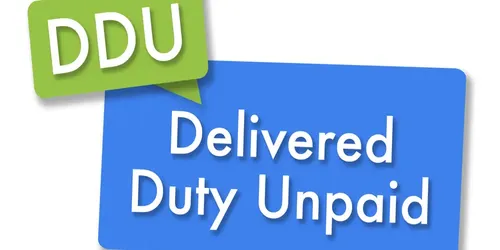Transactions: JPMorgan and Mastercard Collaborate on Pay-by-Bank
Dec 11, 2024 By Pamela Andrew
Mastercard joined forces with JPMorgan Chase on a game-changing move: launching the Pay-by-Bank solution across the vertical. This new bill paid directly from consumers' bank accounts leverages Mastercard's open banking technology to turbocharge JPMorgan's Automated Clearing House capabilities.
The Pay-by-Bank Solution

What is Pay-by-Bank?
The Pay-by-Bank solution aims to enable consumers to pay for services directly from any bank account without using credit or debit cards. It provides billers with a secure and efficient method of collecting payments using traditional ACH banking rails, which is particularly useful when frequent and periodic payments are needed for utilities, rent, tuition, insurance, and healthcare.
Key Features of Pay-by-Bank
- Direct Bank Payments: Consumers can make bill payments directly from any bank account.
- Security Boost: The system secures onboarding using strong consumer authentication with existing bank authentication protocols, driving fraud risk in sensitive financial information transactions to near zero.
- Smart Payment Decisioning Tools: Mastercard analytics lets billers recognize the best time to initiate payment based on past transaction behaviors and risk patterns. This reduces the likelihood of payment failures due to insufficient funds.
- Since billers already use ACH, this option should be easily facilitated on their different payment pages.
How It Works
When a consumer chooses the Pay-by-Bank option at checkout, they are taken to select their bank and securely share their account information through Mastercard's open banking platform. This will be fast and easy, paving the way for recurring payments without having to enter data repeatedly.
The Partnership Dynamics
Why JPMorgan and Mastercard?
The collaboration between JPMorgan and Mastercard was first announced in November 2022. It aims to capitalize on the increasing consumer interest in alternative payment methods. With JPMorgan's extensive experience in payment processinghandling approximately $9 trillion in transactions dailyand Mastercard's robust open banking platform, this partnership is positioned to revolutionize how consumers manage their finances.
Max Neukirchen, Head of Payments and Commerce Solutions at JPMorgan, said this would continue to empower clients to offer their customers a wide range of payment options while growing their overall efficiency. The excitement is driven by a very active pipeline of interested biller customers who want to take on the Pay-by-Bank proposition.
Pilot Programs and Future Prospects
Verizon was named among the first major billers to test the Pay-by-Bank solution with customers over the coming months. The pilot will be invaluable in capturing consumer behavior and preferences regarding the new means of paying bills. With more billers like Verizon adopting the solution, it is expected that Pay-by-Bank will become a mainstay for many industries.
Consumer Benefits

Empowering Digital Consumers
Today's digital consumers expect more control over their financial transactions. This is where the Pay-by-Bank solution addresses the demand for the following:
- Choice and Convenience: Consumers can choose their bank and securely authorize payments, all without the need to be inconvenienced by constantly filling out sensitive banking information.
- Cost Efficiency: Reduced use of credit cards saves consumers money on transaction costs.
- Better financial discipline: With direct bank payment, clients can remain more financially responsible regarding their monthly outlay and avoid the potential overspending on credit.
Addressing Industry Pain Points
Challenges in Traditional Payment Methods
Most bill payments are traditionally multi-step procedures; a mistake or delay could occur at any of those steps. Common pain points include:
- Manual Data Entry: Consumers are often required to manually enter their banking information, which is often prone to errors.
- Fraud Risks: This storage of sensitive financial information is a security risk for consumers and businesses.
- Payment Failures: Insufficient funds lead to failed transactions, further involving extra fees and complications from both parties.
How Pay-by-Bank Addresses These Issues
Pay-by-Bank answers these issues in the following ways:
- Simplify the process of making a payment by directly accessing the bank.
- Improve security by removing the need for businesses to have to store sensitive data of their customers.
- Use analytics to optimize payment timing and minimize transaction failures due to insufficient funds.
The Broader Impact on the Payments Ecosystem
The Rise of Open Banking
The launch of Pay-by-Bank also reflects the broader move toward open banking, inspiring financial institutions to share consumer data with third-party providers securely. This trend transforms how consumers experience financial services as transparency and competition rise between providers.
As Chiro Aikat, executive vice president of U.S. Market Development at Mastercard, said, "Today's consumers want more value in each exchange, and this payment solution gives them more control and streamlines everyday expenses, such as monthly bills."
Future Developments in Payment Solutions
Because fintech innovation will continue for a while, more companies will likely jump into such partnerships or develop pay-by-bank solutions. If this initiative is successful, it could lead to the wide adoption of alternative modes of payment across sectors.
Conclusion
This will be a quantum leap in how consumers manage bill pay. With the Pay-by-Bank solution via open banking technology, Mastercard and JPMorgan Chase are responding to growing consumer demand for heightened security, convenience, and efficiency in financial transactions. As more billers turn to this innovative approach, it's poised to change the digital payments landscape throughout the United States and beyond.








